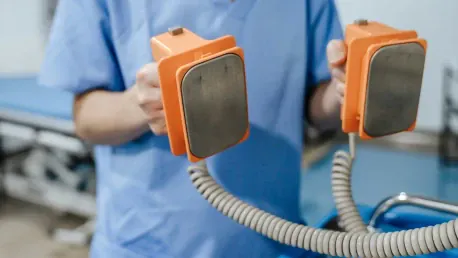In a country where out-of-hospital cardiac arrest survival rates remain a troubling 8%, even a minor change in policy could lead to a significant improvement in public health outcomes. A prominent campaign led by UK first aid and cardiovascular charities, including the British Heart Foundation, St John Ambulance, British Red Cross, and Resuscitation Council UK, aims to eliminate VAT from the purchase of defibrillators. This effort, championed by cardiac arrest survivor Jack Hurley, seeks to address the financial obstacles that hinder the widespread availability of these life-saving devices, making them more accessible to local clubs, small businesses, and broader communities.
Immediate access to a defibrillator can mean the difference between life and death during a cardiac arrest. Research indicates that using a defibrillator within the first 3-5 minutes of an attack can increase the chances of survival to 70%. However, on average, a UK resident is over 700 meters away from a defibrillator, translating to a nearly 20-minute round trip—a critical delay for someone experiencing a cardiac arrest. This situation is exacerbated by the additional VAT, which ranges between £200-£500 per device, creating a prohibitive expense for many organizations. The goal of the campaign is not just to eliminate this tax but to enhance overall public health by making defibrillators more affordable and thus more prevalent in the community.
The campaign has garnered significant attention, especially with Jack Hurley personally submitting a plea to No 10 Downing Street and informing Members of Parliament and Peers about the unjust taxation. It is more than a financial issue; it’s a moral one. Reducing or eliminating the VAT on defibrillators could remove a substantial barrier, potentially enabling more individuals and entities to purchase these crucial devices. The initiative calls for the government to recognize the urgent need for change and to act by removing this financial burden.
Ultimately, the proposal to scrap VAT on defibrillators could greatly influence the accessibility and availability of these essential devices, possibly saving countless lives. The emphasis is on encouraging the government to heed the voices of charities, survivors, and industry representatives to foster a healthier, safer environment for all UK residents. This campaign’s success could serve as an essential step toward improving the grim cardiac arrest survival statistics and ensuring more lives are saved in emergency situations.









